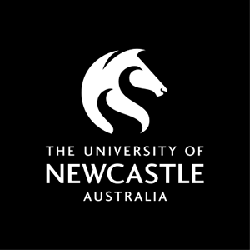About Bachelor Of Aerospace Systems Engineering (honours) in University of Newcastle
What you will study
Become job-ready through four professional practice courses and diversify your skills with four elective pathway courses. Build critical technical engineering skills in:
- aircraft operations and performance
- principles of flight and avionics
- aerospace design and materials
- embedded systems engineering
- a final year research project
Career opportunities
Aerospace engineers are typically employed by national and international airlines, aircraft design and manufacturing companies, airworthiness organisations and the Australian Defence Force.
They work on the design, manufacture, performance monitoring, regulation, testing, repair, maintenance and upgrading of aircraft. They can work in research and develop new technologies for aviation, defence systems and space exploration. They may also be involved with procurement, regulation, safety, and certification.
With the selection of appropriate courses in their elective pathways, UON Aerospace Engineering graduates will also be well equipped to take up opportunities in systems engineering, mechanical and mechatronics engineering in other industries.
Typical positions include:
- Aerospace Engineer
- Satellite Engineer
- Systems Engineer
- Various positions within aircraft design and manufacturing companies, Australian and international airlines, airworthiness organisations and the Australian Defence Force.
Academic qualification equivalents
- Applicants must have passed All India Senior School Certificate (CBSE) with 13 points or from ISC with 83%
English language requirements (one of the below):
- IELTS : 6 With minimum of 6.0 in each band
- TOEFL : 60 Overall score between 60-78 with the following scores in each band-
- Reading= 13-18
- Listening= 12-19
- Speaking= 18-19
- Writing= 21-23
- PTE : 50 Overall score of 50-57
University of Newcastle Highlights
| University type |
Public |
| Rank |
207 in World |
| Intake type |
Semester based |
| Programs |
Over 180 |
| No. of Campuses |
5 |
| Applications accepted in |
January, February, May, June, July, August |
University of Newcastle The Average Tuition Fees And Other Expenses
- The tuition fee at the University of Newcastle differs depending upon the degree level and whether one is receiving commonwealth assistance, international education or studying part-time.
- Program cost for some popular undergraduate courses is given below-
| Program name |
Program cost |
| Bachelor in Business (Honors) |
30,090 AUD |
| Bachelor in Science (Honors) |
38,515 AUD |
| Bachelor in Law (Honors) |
30,290 AUD |
- Program cost for some popular graduate courses is stated below-
| Program name |
Program cost |
| Master of Business Administration (Global) |
29,770 AUD |
| Master of Business Administration (Global) / Master of Science (Data Analytics) |
32,635 AUD |
| Master of Law |
31,785 AUD |
Accommodation Cost
The institute provides its applicants with an option of choosing a mode of accommodation that suits their needs and requirements best. The cost of different types of accommodation available to aspirants seeking admission to UON is as follows:
| Type of Accommodation |
Cost in AUD (per week) |
| On-campus (catered) |
320 to 510 |
| On-campus (non-catered) |
175 to 385 |
| Hostels and Guesthouses |
90 to 150 |
| Homestay |
235 to 325 |
| Off-campus |
100 to 440 |
Other expenses
| Type of Expenses |
Cost in AUD (per week) |
| Groceries and Food |
80 to 280 |
| Public Transport |
15 to 55 |
| Entertainment |
80 to 150 |
| Gas and Electricity |
35 to 140 |
| Others |
200 to 400 |
Estimated overall expenditure of a year (excluding tuition fee): 20,290 AUD.
English Proficiency Test Scores For International Students
English Language Proficiency Test scores are a measure of the English Language fluency of the applicants. The University of Newcastle expects all students to fulfill these test score requirements, including students whose first language is English or have studied in an educational institution whose language of instruction is English for at least 4 years. These tests are conducted to provide a structural base so that there is no hindrance to cope with the syllabi.
| Test |
Minimum Scores |
| IELTS |
6.0 to 6.5 - Academic |
| TOEFL |
64 to 93 – IBT 500 - PB |
| CAE (Cambridge English: Advanced) |
52 |
| CPE (Cambridge English: Proficiency) |
N/A |
| IB (International Baccalaureate) -Standard Level |
4 |
| IB (International Baccalaureate) -Higher Level |
3 |
Note: These scores are course dependent and may vary from course to course and hence, students are advised to be well aware of the minimum score requirements.
